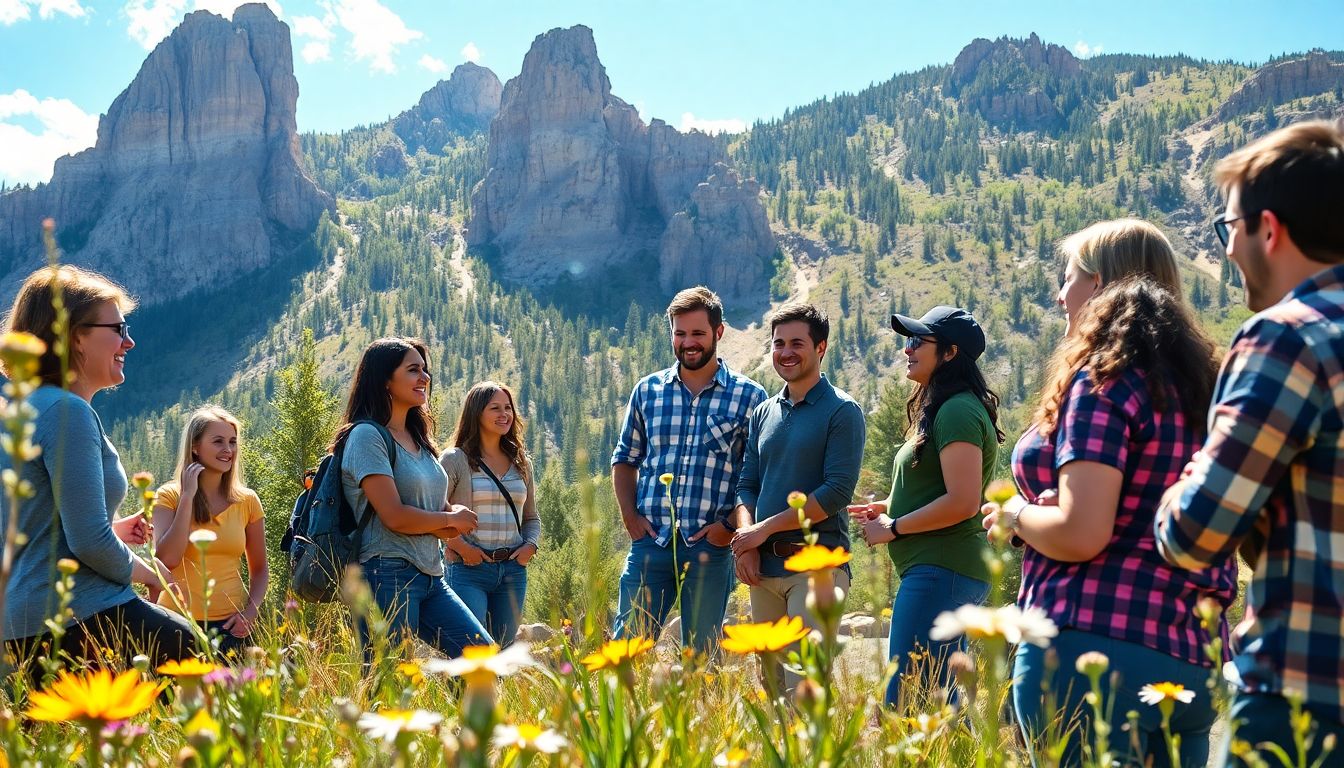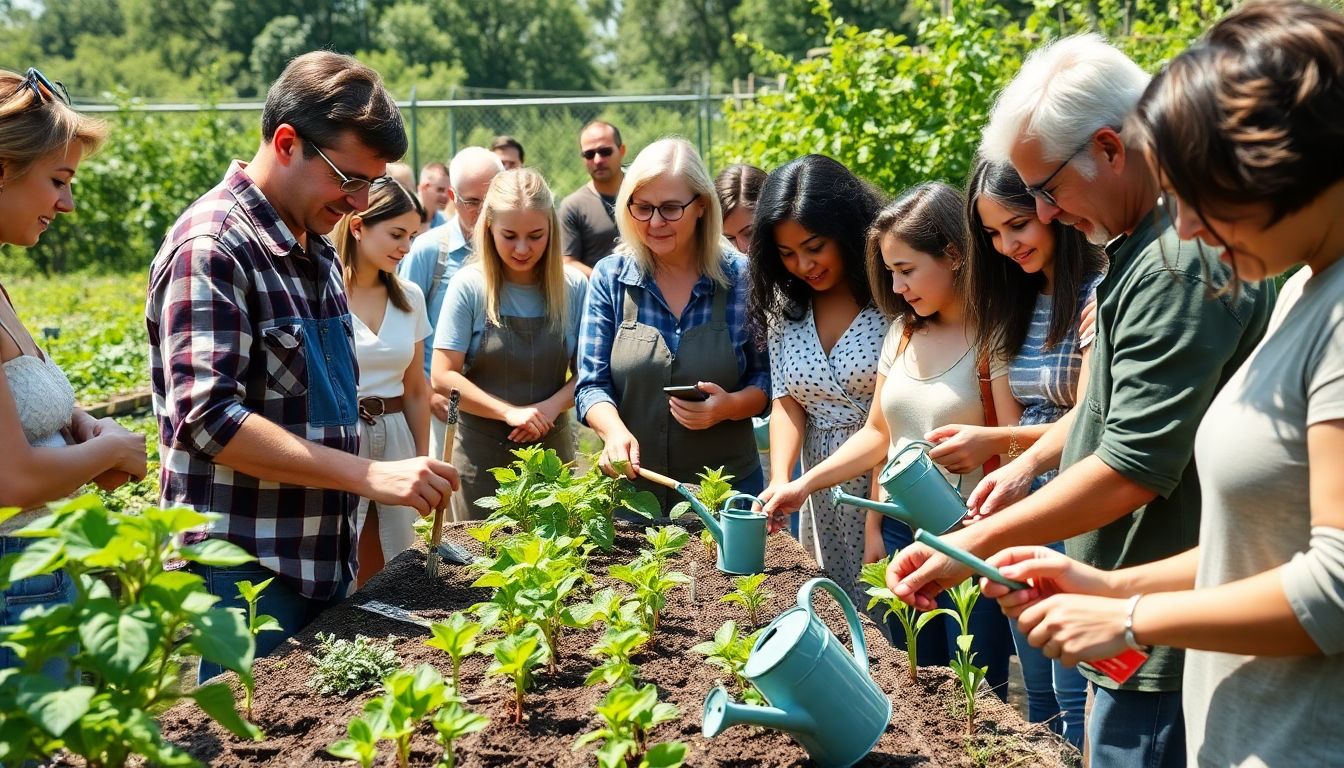Most Colorado gardeners have spent lots of years waging war with the conditions this state throws at them: short growing seasons, alkaline soils, and harsh sunlight. But they have not given up hope-it is possible for one’s organic methods to cultivate a productive garden. Organic methods give much healthier food and provide benefits to the environment. The article outlines important tips and techniques for making a successful organic garden in Colorado.
Gardeners Face Challenges because of Colorado Gardening
A unique ecology creates unique challenges in gardening across the state. Let’s explore some of the issues.
Shorter Growing Seasons
The growing season in Colorado is short. Make every day happen in that time. Start your seeds indoors very early. This early start gives your plants a head start. Also use things like row covers and cold frames-season extenders-to further protect your plants from frost.
Another way is to choose early-maturing varieties. For example, there are ‘Early Girl’ tomatoes and ‘Spicy Bush’ basil. These are varieties that can handle Colorado’s conditions.
Alkaline soils
Plants won’t be able to absorb nutrients properly because of alkaline soil. First, soil-testing. Amend your soil by compost or sulfur in order to create balance in the pH.
Heat Stress Due to Sun and Low Humidity:
Heat stress in plants is exacerbated by high temperature and low humidity conditions. The idea is to water it more deeply and less frequently. Use shadecloth to shade tender plants and prevent them from burning.
Soil Preparation: Foundation of Organic Success
Healthy soil-key for organics. Let’s have natural build-up of the soil.
Composting for Gardens in Colorado
Composting improves the health of soil-they contribute nutrients and improve retention of water. Pile compost made out of kitchen scraps and yard waste.
Incorporate pine needles and leaves in your compost; this breaks down well in Colorado to create rich compost for your garden.
Natural Soil Amendments
Organic amendments boost soil as they provide nutrients and improve the soil structure. Good choices include peat moss and aged manure.
No-Dig Gardening Techniques
No-dig gardening is easy. It reduces soil disturbance and saves time. Add layers of organic matter on top of the soil. It enriches the soil and minimizes weeds.
Mary, who is a local gardener, uses no-dig methods and finds her vegetables thrive! She says that it is less work but gives far better results.
Choosing Plants Suitable for Colorado
Pick plants that really go well with Colorado’s environment. It really helps to ensure your success.
Native Plants in Colorado Gardens
Low maintenance: Native plants are tolerant of drought and have good drought resistance. Beneficial insects attract those who are interested in gardening.
Such species include Rocky Mountain Penstemon and Blue Grama grass. Both of them are well-adapted to Colorado.
Vegetable Gardening in Colorado: Best Varieties
There are several vegetables that do very well in Colorado. Choose varieties that fit into the local climate.
They will try ‘Colorado Gold’ potatoes or ‘Pueblo’ chile peppers. Cool-season crops go into the ground in early spring. The warm-season crops go in right after the last frost.
Drought-Tolerant Flowers and Herbs
Choose flowering and herb plants suited for dry weather. They will bring beauty to your garden.
Lavender, rosemary, and yarrow should be planted. Companion planting helps, after all. Herbs can stop vegetables from being eaten by insects.
Organic Pest and Disease Control
Pests and diseases are dealt with organically for a healthy garden.
Attracting Beneficial Organizational Animals
Beneficial insects eat pests. Attract them by the plant host.
Dill, fennel, and sunflowers are excellent plants to attract ladybugs and lacewings.
Organic Pest Control Measures
Use organic pest control methods for the sake of plants and the environment. Works are insecticidal soap and neem oil.
Create your own pest-control spray using garlic and water as the solution. It repels several common pests.
Plant Disease Prevention
Control plant diseases with good practices. Water at their base. Give them good circulation.
Try growing disease-resistant strains as much as possible to avoid common problems.
Some Watering Techniques for Organic Ecological Gardens
Water smartly for your garden. This is more so in Colorado.
Drip irrigation systems
Drip irrigation saves water by watering directly at the root zone.
For small garden users, drip irrigation kits are a nice system to keep your plants thriving.
Mulching Techniques
Mulch holds moisture and controls weeds.
Organic mulches, such as straw or wood chips, will vanquish your soil.
Water Harvesting
Catch rainwater for your garden in rain barrels. Be sure to look for local laws concerning rainwater harvesting.
Conclusion
Organic gardening would be successful in Colorado; with some prior planning, soil knowledge, correct plants’ selection, and wise use of water, the challenges can be overcome. Accept these principles, and your garden will be healthy and full of life.
Share below your experiences!! Any questions? We would love to hear!



